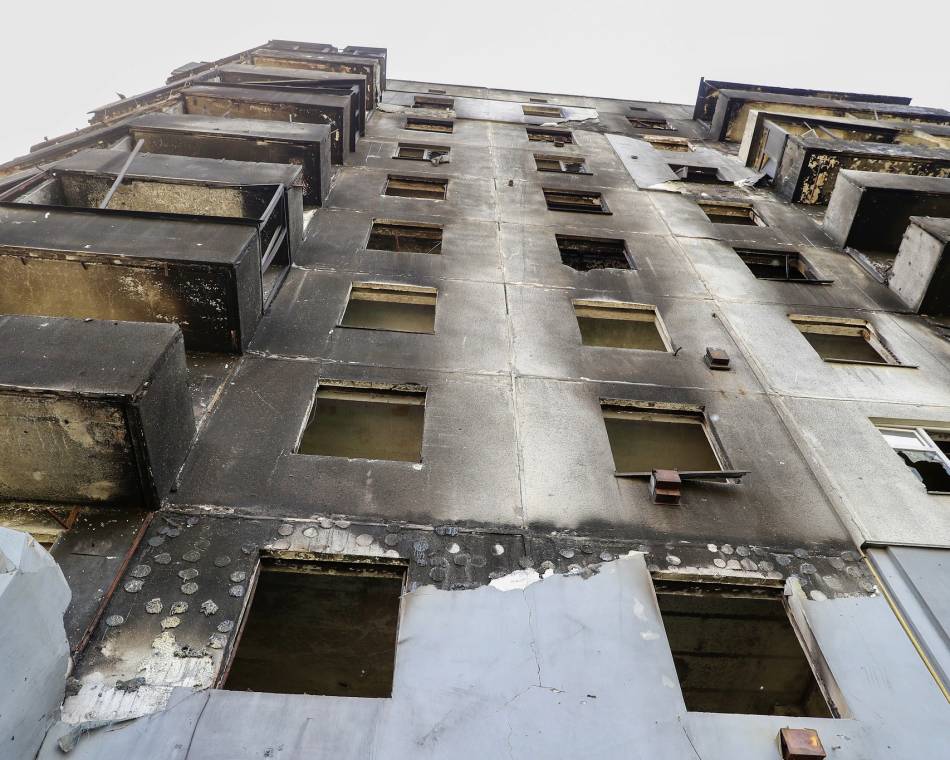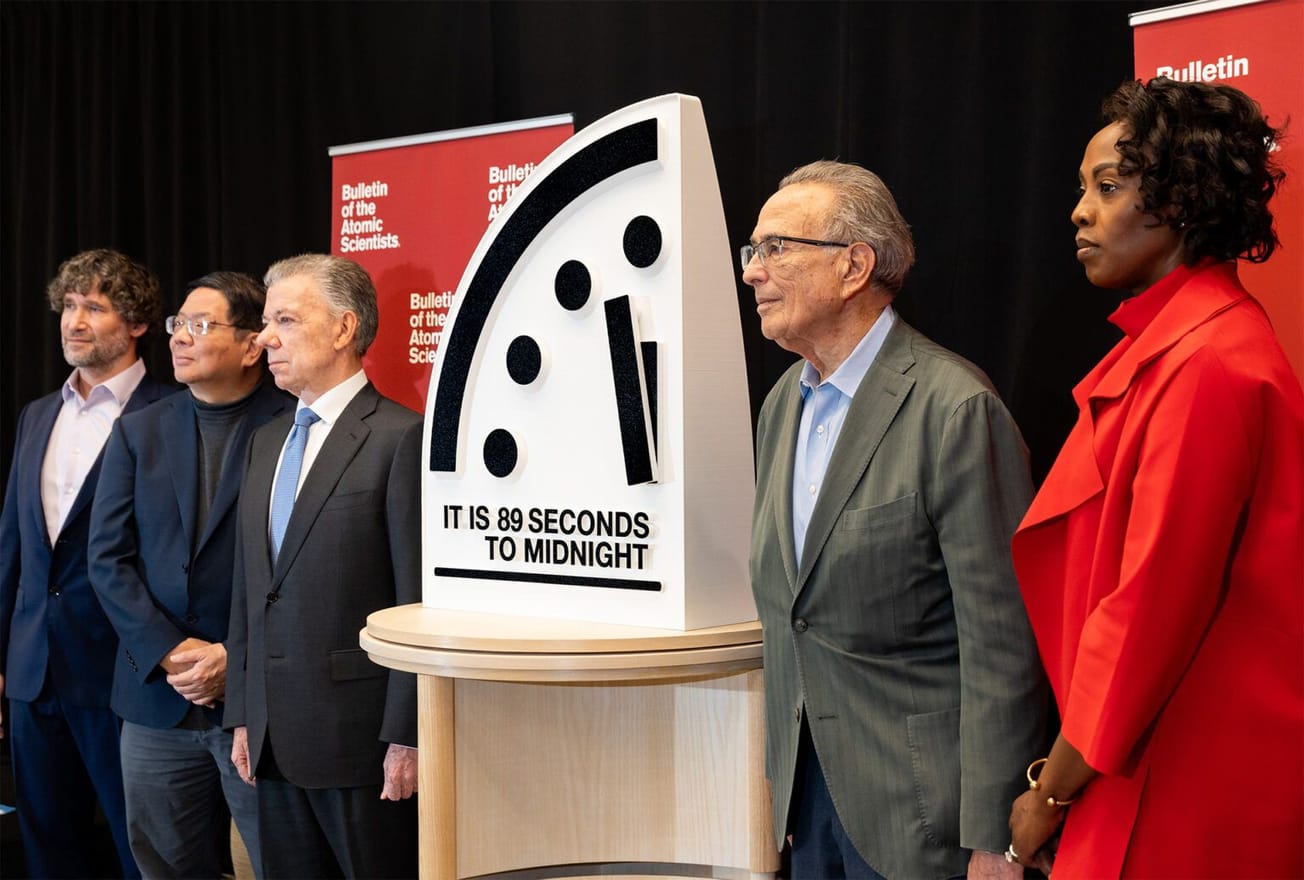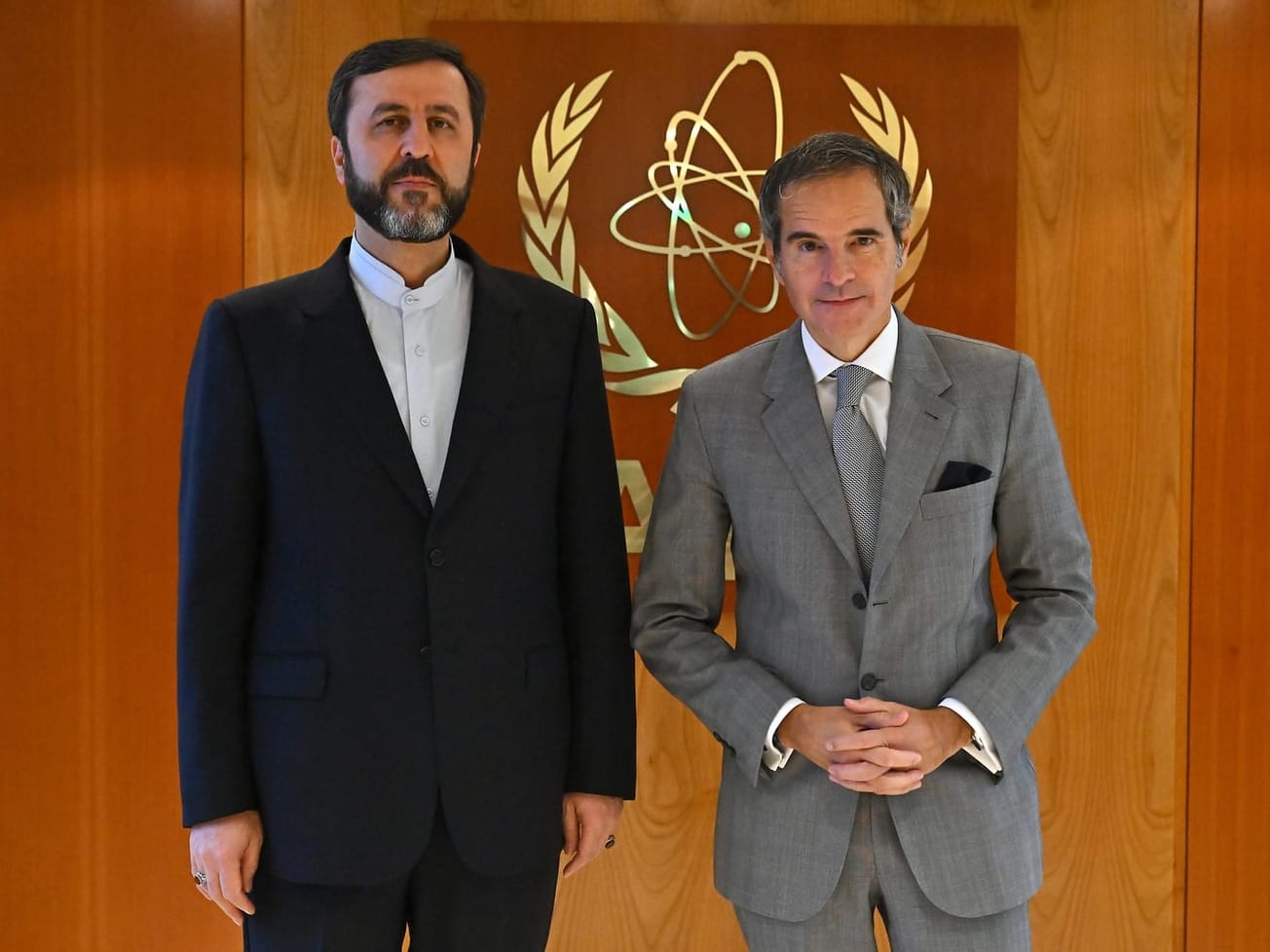Ukraine’s Foreign Minister Dmytro Kuleba asked for experts from the U.N. nuclear watchdog to debunk Moscow's claims that Kyvi plans to use so-called dirty bombs against Russia's military.
The move is an attempt to defuse the possibility of the Kremlin using a pretext to escalate its war in Ukraine. Russia's Defense Minister Sergei Shoigu has claimed that Ukraine may use a dirty bomb, built from a mixture of explosives and radioactive material to cause contamination within a relatively small area.
"Unlike Russia, Ukraine has always been and remains transparent. We have nothing to hide," Kuleba said on Monday.
At Kubela's invitation, he said, International Atomic Energy Agency's Director General Rafael Mariano Grossi agreed "to urgently send experts to peaceful facilities in Ukraine which Russia deceitfully claims to be developing a dirty bomb."
Russian Lieutenant General Igor Kirillov, who oversees the nation's nuclear, biological and chemical protection troops, told a press briefing that Russian forces were preparing to "work under radioactive contamination."
White House national security spokesperson John Kirby, however, told journalists that there is no evidence of "preparations by the Russian side for the use of nuclear weapons."
European Commission Vice President Josep Borrell, who serves as the European Union’s foreign policy chief, "welcomed Ukraine's decision to invite IAEA experts" so they can confirm that Kyiv does not have any undeclared nuclear activities or material, Kubela said after they spoke in a call.
"We agreed to work actively together in the coming hours and days to deliver facts and counter another Russian lie about Ukraine in the Global South, including Latin America, Africa, and Asia," Kubela said.
Grossi confirmed that IAEA is aware of Russia's statements about alleged activities at two nuclear locations in Ukraine but said "both locations are under IAEA safeguards and have been visited regularly by IAEA inspectors."
IAEA received a written request from Ukraine to send teams of inspectors to carry out verification activities at the two locations, he said, and the U.N. nuclear agency is preparing to visit the locations within days.
“The IAEA inspected one of these locations one month ago and all our findings were consistent with Ukraine’s safeguards declarations,” Grossi said. “No undeclared nuclear activities or material were found there.”
"When today 🇷🇺Minister of Defense organizes a phone carousel & calls foreign ministers with stories about the so-called "dirty" nuclear bomb, everyone understands everything well. Understands who is the source of everything dirty that can be imagined in this war", - @ZelenskyyUa pic.twitter.com/mx6PZWCNEn
— Anton Gerashchenko (@Gerashchenko_en) October 23, 2022
Efforts to dampen fears
Three of the United Nations Security Council's five veto-wielding permanent members — France, the United Kingdom and the United States — jointly warned that Russia might be looking for ways to justify pounding Ukraine in even more destructive ways than it has been since the invasion began on Feb. 24. The other two permanent council members are China and Russia.
The top diplomats from France, the United Kingdom and the United States said they each spoke with Shoigu at his request.
"Our countries made clear that we all reject Russia’s transparently false allegations that Ukraine is preparing to use a dirty bomb on its own territory," they said. "The world would see through any attempt to use this allegation as a pretext for escalation. We further reject any pretext for escalation by Russia."
Kremlin spokesman Dmitry Peskov told a press briefing that the West's "distrust of the information provided by the Russian side does not mean that the threat of using such a ‘dirty bomb’ ceases to exist. The threat is obvious."
NATO Secretary General Jens Stoltenberg, however, also dismissed Russia's claim that Ukraine was planning to use a dirty bomb. He said he spoke about it on Monday with U.S. Defense Secretary Lloyd Austin and U.K. State Secretary for Defense Ben Wallace.
“NATO Allies reject this allegation,” Stoltenberg said. “Russia must not use it as a pretext for escalation. We remain steadfast in our support for Ukraine."
This story has been updated with additional details.








